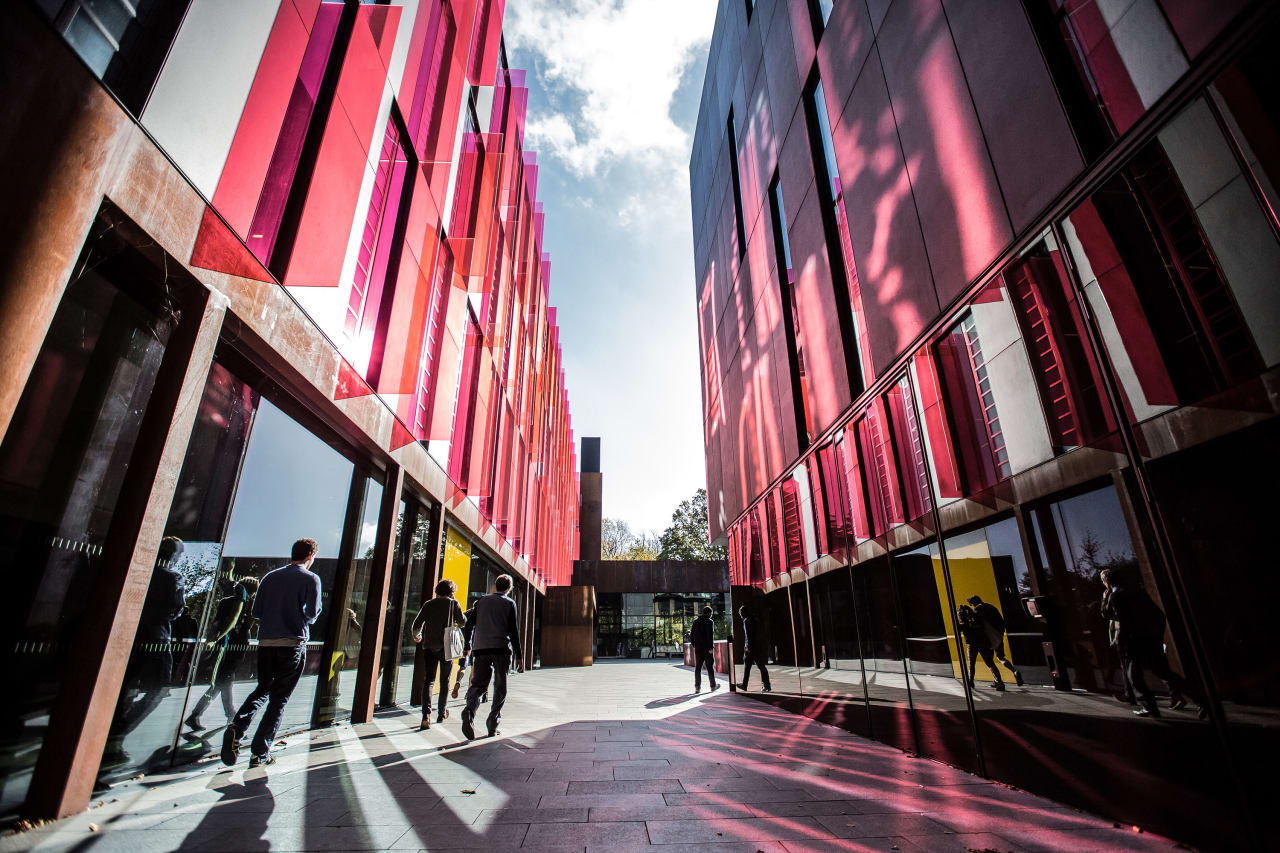
MA in International Architectural Regeneration and Development
Oxford Brookes University

Key Information
Campus location
Headington, United Kingdom
Languages
English
Study format
On-Campus
Duration
12 - 24 months
Pace
Full time, Part time
Tuition fees
GBP 15,900 / per year *
Application deadline
Request info
Earliest start date
Request info
* UK students full-time: £9,900 | International/EU students full-time: £15,900
Scholarships
Explore scholarship opportunities to help fund your studies
Introduction
The MA in International Architectural Regeneration and Development explores the sustainable development and regeneration of the built environment.
You will explore the creative, adaptive reuse of the existing built environment through sensitive and creative design interventions or choose to pursue a research-based path. You’ll learn innovative ways in which heritage sites can be evolved for contemporary use whilst respecting their diverse values.
You will investigate the environmental, social and cultural issues involved in regenerating the built environment as well vernacular construction methods in your design studio-based module.
The course has a global focus and you will be introduced to a network of international organisations in the field. You will gain skills in:
- critical thinking and analysis
- field research and creative design
- project management
- working in different cultural contexts.
On graduating you will be able to take on a leading role in organisations involved in architectural regeneration and development.
Gallery
Admissions
Scholarships and Funding
Curriculum
Study modules
Compulsory modules
- Architecture, Culture and Tradition (20 credits)
This module provides an introduction to the anthropology of architecture and the field of international vernacular architecture studies. Drawing upon examples of vernacular building traditions from around the world, it seeks to analyse the dynamic interaction between architecture, social structure, cultural behaviour and the natural environment. - Applications in Regeneration (20 credits)
This is a lecture and seminar programme that introduces the principles that underlie sustainable regeneration and the key players involved in the process. The practices of conservation and regeneration ranging from small rural settlements to post-industrial areas are examined through case studies considering heritage value and significance, an adaptation of the built fabric, community participation and economic forces such as the role of heritage, the arts and tourism in regeneration. - Regeneration and Development Project (30 credits)
This is a studio-based module that builds on the taught modules in developing strategic planning, contextual design and project management skills to solve problems in adapting and revitalising the existing built environment. Through a project set in a real-life location, students are expected to develop culturally and socially sensitive, environmentally responsible and financially viable strategic plans and design interventions for historic urban quarters, post-industrial sites or rural/vernacular settlements. Master's students may also develop one aspect of the regeneration strategy through a research report in place of a design proposal. - Research Methods (10 credits)
This module encourages MA students to develop the skills needed in the research of environmental problems, including the formulation of research problems and methodology, data collection and analysis. - Resilient Urbanism (20 credits)
This is a lecture and seminar-based module developing analysis and research skills to address questions of resilience in urban agglomerations. The module examines the multi-scalar factors that affect urban resilience. Through a series of lectures, seminars, debates and workshops, students are acquainted with the theory, critiques and applications of the concept of resilience in a range of urban contexts around the world, with particular reference to the role of the existing built environment in fostering urban resilience. Students are familiarised with current resilience assessment frameworks and are taught to critically reflect on how their practice in the urban built environment impacts urban resilience.
Optional modules
- Regeneration Methods and Practices (10 credits)
This consists of masterclasses delivered by expert scholars providing opportunities for you to learn from, and engage in academic interaction with leading figures in the field through the intensive and detailed exploration of specific and current themes and problems. Subjects covered range from contemporary approaches to field research, designing in the context of a historic environment, designing with tradition and creative feasibility.
Independent study
- Independent Study
Students with research experience or with substantial practice and field experience may select research or practice-oriented route to the MA through the Independent Study option by participating in ongoing research activities linked to the programme. Independent study may include literature reviews or be linked to research in practice.
Final project
- Dissertation or Design Project
The final project is a dissertation or a major design project, supported by a project report. This component provides the opportunity for in-depth research and analysis and to develop and apply research and design skills in a specific area of architectural regeneration.
Learning and teaching
We aim to provide the knowledge and tools that will enable you to recognise the potential of and contribute creatively to, the appropriate and sustainable regeneration of the inherited built environment in urban or rural contexts, including vernacular architecture.
You will develop a critical awareness of the cultural embodiment of the built environment. And associated regeneration and development processes.
You will gain the skills and tools to enable you to propose and implement strategies and interventions that are:
- innovative
- culturally sensitive
- environmentally sustainable.
Our teaching methods include a combination of:
- lectures
- seminars
- design studios
- workshops
- group discussions
- field study
- master classes.
Program Tuition Fee
Career Opportunities
Jobs in architectural regeneration can include a wide range of prospects including private sector consultancy assignments, public sector decision making positions or working for not for profit organisations delivering or assisting the regeneration process.
Graduates of this programme have gone on to work in a wide range of positions in the regeneration field internationally. Much of the success of a career in regeneration is combining the knowledge and skills learnt in the programme with professional skills gained in previous studies and practice. Although we are unable to directly ‘find’ jobs for programme graduates, we regularly make recommendations through a good network of contacts and alumni and share employment opportunities with current students and graduates of the programme.
Graduates with architecture backgrounds often go on to work in practices specialising in regeneration or rehabilitation. Younger graduates have found that regeneration expertise has given them an edge and therefore more responsibility in practices they are working at. Those with more experience have found opportunities to diversify and gain positions in consultancy or multi-disciplinary practices.
There is also a wide range of jobs in the non-governmental sectors, ranging from managing small non-governmental (charitable) organisations to working on projects for major donor bodies like UNESCO. We have had an Indian graduate working on post-disaster rebuilding in Haiti, a Japanese graduate working on the preservation of vernacular architecture in Vietnam, and a Canadian graduate running donor-assisted construction programmes in Papua New Guinea. Closer to home, a UK graduate with a background in law is managing a townscape heritage initiative on behalf of the Heritage Lottery Fund.
Overseas students in particular, who have joined the programme from public sector assignments, have found that the degree has helped them both specialise and progress in their departments on their return. One graduate has gone on to head the procurement team in the Ministry of Municipalities specifically dealing with major regeneration projects. Several others work for their respective national heritage authorities.
Other graduates have used the programme as a stepping stone for PhD study, at Brookes or elsewhere. A number of former graduates are now teaching regeneration and conservation at degree and postgraduate levels.